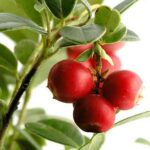 Researchers at the Northern Arizona VA Health Care System, in Prescott, Arizona report that no interaction occurred.
Researchers at the Northern Arizona VA Health Care System, in Prescott, Arizona report that no interaction occurred.
How should we consider these findings in light of other research showing an interaction?
First, the details.
- 10 men taking stable doses of warfarin were given cranberry juice 240 mL (8 oz) twice daily for 7 days.
- Prothrombin times (PT) were measured before and over 8 hours after administration of the juice.
- PTs were averaged for each day and compared to other day’s values.
- PT is a blood test that measures how long it takes blood to clot.
And, the results.
- There was no statistical difference between average PT values before taking cranberry juice and any day during juice administration.
The bottom line?
The authors concluded, “Cranberry juice (240 mL twice daily for 1 week) did not alter the pharmacodynamics of warfarin in patients.”
Interesting, but others have reported (here and here) that co-administration of warfarin and cranberries requires careful monitoring, because there is a risk of an interaction. This conclusion was based on an change in INR during cranberry administration.
INR is an alternative test for measuring ability of blood to clot.
PT and the NR measure the same pathway in the coagulation cascade. The INR was introduced to standardize the results, because PT results can vary depending on the source. More than you ever wanted to known about these tests can be found here.
Ultimately, in the face of discrepant research results and the potential significant of this interaction, patents taking warfarin (Coumadin) should tell their healthcare professional if they are drinking or take other sources of cranberries for any reason.
6/17/10 20:53 JR